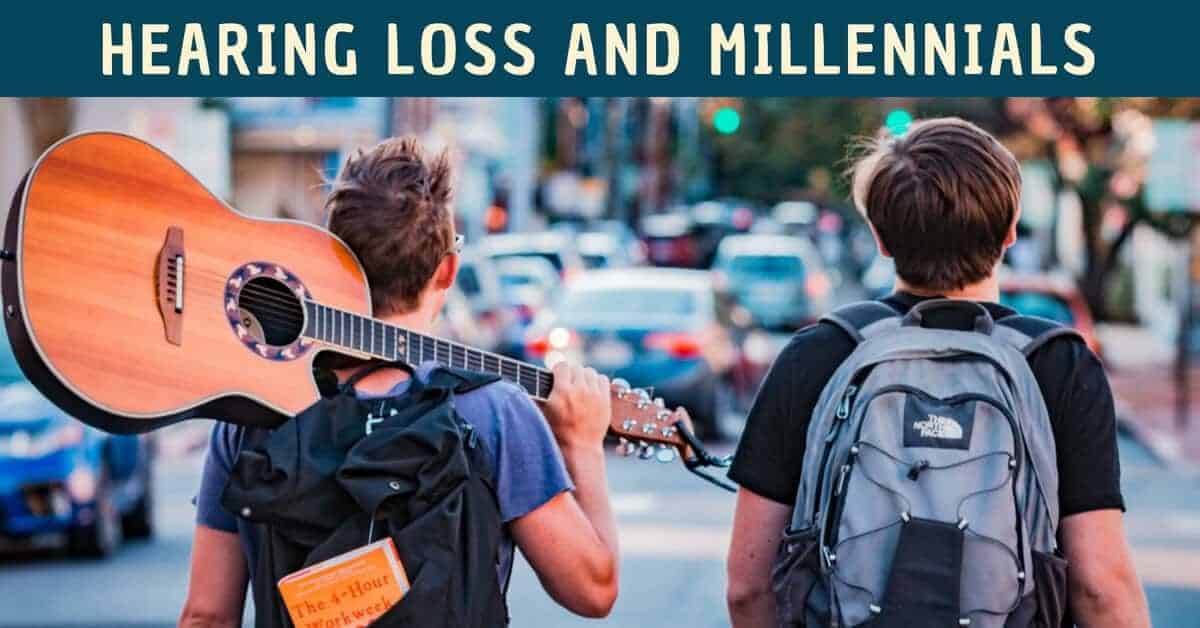Close your eyes and imagine millennials. When you do so, think about all the words you use to describe them. Now open your eyes, on the top of that list was “hearing impaired”, correct?
No? Well surprisingly, maybe it should be. New evidence from the CDC states that about 40 million adults age 20-69 suffer hearing loss caused by noise, and about 17% of teenagers aged 12-19 have some degree of noise induced hearing loss in one or both of their ears. Even more shockingly, the World Health Organization warns about an upcoming hearing loss crisis, stating that a whopping 1.1 billion teenagers are at risk for hearing loss caused by their noisy leisure activities.
Meet Anna, She’s 33.
Anna Pulley wrote an incredibly endearing essay in The Cut magazine titled, “My Ridiculous, Romantic, Painful Adventures in Deafness”. The article has been shared more than 1,700 times and really made a splash in the industry. Finally, a millennial discussing hearing loss.
Anna got her first inkling she had hearing loss at age 9, when her brother and his friends mocked her tirelessly for misunderstanding what they said. Fast forward to a decade later, and Anna was diagnosed with binaural sensorineural hearing loss. Even though she faced fear of being stigmatized, Anna finally got hearing aids at age 19. No one explained to her that there was an adjustment period to wearing hearing aids and she jokingly looks back on the experience stating, “my own voice boomed as if James Earl Jones had suddenly taken up residence inside my skull. Eating a tortilla chip was akin to the opening scene from Saving Private Ryan”. Anna quit wearing aids.
Anna tried hearing aids again when she was 22, a high school teacher, and an AmeriCorps volunteer. Sadly, a student with special needs had confided in her that her older boyfriend was threatening her. Anna remembers seeing the panic on the child’s face, but not hearing her words or therefore being able to console her. She was devastated by the experience and wrote, “for the thousandth time I was struck dumb by my own uselessness”.
In her essay, Anna hilariously discusses a few other, lighter “adventures in deafness” such as the time she mistakenly thought a bird was cat-calling her or the time she thought her partner told her she had a “duck face” (the partner told her she had a seductive face).
Anna is now 33 years old and although she has found hearing aids that help her better communicate with friends, family and co-workers, she still experiences what she calls her “adventures in deafness”. You can read Anna’s very funny and very engaging essay here.
How Millennials Can Protect Against Hearing Loss
For Anna, her hearing loss is genetic, and has been with her entire life, however there is always the potential for further damage caused by excess exposure to noise. No matter what your age or how much hearing ability you may or may not have, hearing protection should be as common place in our lives as sunscreen or sunglasses. Here are some tips to help millennials (or anyone) protect their hearing.
- Follow the 60/60 rule. One of the main reasons hearing loss is affecting young people at higher rates now more than ever before is that our personal listening devices have the ability to blast music much louder than devices in the past (i.e. Walkman). On top of this, the earbuds of today sit closer to the eardrum. Following the 60/60 rule can help protect against that. Listen to your headphones or earbuds at up to 60% of the max volume for no more than 60 minutes at a time. If you just do this, you are already doing more than most millennials do to protect their hearing.
- Give your ears a break. There are more reasons to periodically skip the weekend party than your wallet or your liver. Most often, noise induced hearing loss is cumulative, meaning it happens due to a lot of exposure to noise over a long period of time. The more breaks you give your ears and the more time away from noisy places the better for your hearing.
- Wear hearing protection. We know millennials don’t like this one but it is important, if you are going to expose yourself to loud noises, you need to wear hearing protection.


